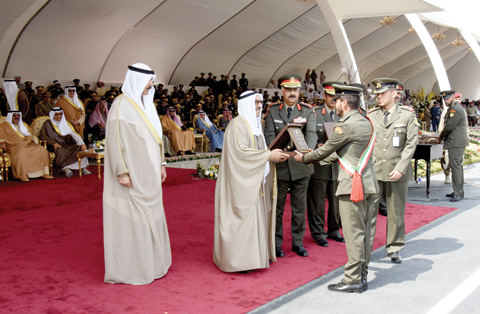BEIJING/LONDON: China and the EU vowed Wednesday to strike back and defend their economic interests against sweeping new US steel and aluminum tariffs, moving Washington closer to an all-out trade war with two major partners. The levies took effect just after midnight on Wednesday "with no exceptions or exemptions”, as promised by the White House — despite countries’ efforts to avert them.
The EU put on a quick show of force Wednesday against sweeping new US steel and aluminum tariffs, striking back with countermeasures that seek to hurt the United States and force it to the negotiating table. The European Commission, which leads the EU’s trade policy, responded swiftly by saying it would impose "countermeasures” from April 1.
"We deeply regret this measure,” European Commission chief Ursula von der Leyen said in a statement, adding that "the countermeasures we take today are strong but proportionate”.
"As the US is applying tariffs worth $28 billion, we are responding with countermeasures worth” the equivalent in euros, she said. And China, the world’s leading steel manufacturer — though not a major exporter of the product to the United States — vowed "all necessary measures” in response.
"There are no winners in trade wars,” foreign ministry spokeswoman Mao Ning said.
Washington’s tariffs would "seriously damage the rules-based multilateral trading system”, she warned. US President Donald Trump’s 25 percent duties on both metals will likely add to the cost of producing various goods from home appliances to automobiles and cans used for drinks, threatening to raise consumer prices down the road, experts say.
"It wouldn’t surprise me to see the tariffs pretty quickly show up in prices,” Cato Institute research fellow Clark Packard told AFP. He added that auto manufacturing and construction — spanning both residential and commercial buildings — are among the biggest users of steel in the country.
Trump has imposed steep tariffs on major US trading partners Canada, Mexico and China since returning to office, allowing only a partial rollback for his country’s neighbors while vowing fresh levies from April 2. The latest duties will again impact Canada heavily, with the country supplying about half of US aluminum imports and 20 percent of its steel imports, according to a recent note by EY chief economist Gregory Daco. Besides Canada, Brazil and Mexico are also key US suppliers of steel, while the United Arab Emirates and South Korea are among the major providers of aluminum.
Wednesday’s levies stack atop earlier ones. This means some Canada and Mexico steel and aluminum products likely face a 50 percent tariff rate unless they are compliant with the US-Mexico-Canada Agreement (USMCA). Uncertainty over Trump’s trade plans and worries that they could tip the world’s biggest economy into a recession have roiled financial markets, with Wall Street indexes tumbling for a second straight day on Tuesday.
Washington has framed the tariff moves as a bid to protect US steel and American workers as the sector declines and faces fierce overseas competition, especially from Asia. And it’s not the first time Trump has slapped tariffs on the metals. During his first presidency, he imposed duties on steel and aluminum exports in 2018 - forcing the EU to respond with its own higher duties that are frozen until the end of March.
As part of the EU’s two-pronged approach to Trump’s actions, von der Leyen said Brussels will also allow those previous higher levies to be reinstated. The EU’s countermeasures would be fully in place by mid-April unless Trump reverses course.
Meanwhile, Britain’s government said on Wednesday it was disappointed with President Donald Trump’s imposition of tariffs on steel and aluminum imports but did not follow the European Union in retaliating. Britain had hoped to avoid tariffs on its steel sector, which is small but produces specialist products for defense and other industries. Trump said last month the two countries might reach a bilateral trade deal that would avert duties.
"It’s disappointing the US has today imposed global tariffs on steel and aluminum,” Britain’s business minister Jonathan Reynolds said. "We are focused on a pragmatic approach and are rapidly negotiating a wider economic agreement with the US to eliminate additional tariffs and to benefit UK businesses and our economy.” — Agencies


